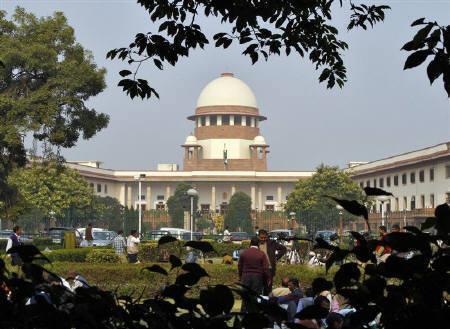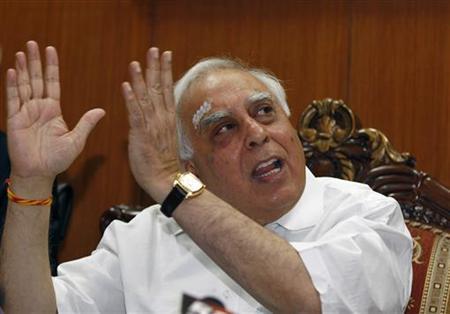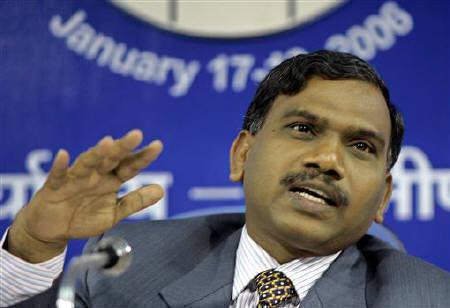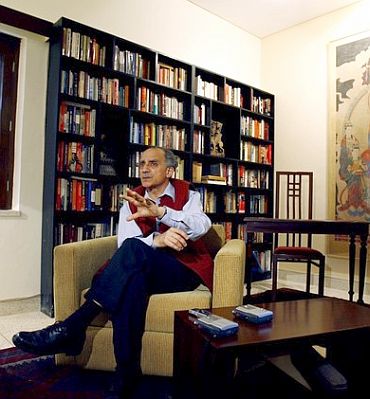 | « Back to article | Print this article |
Here's how the telecom story can take a new twist...
The Supreme Court judgement on the telecom scam raises many questions; so this is by no means the last word on the subject.
Here are four sets of possibilities.
First, the international telecom companies that have paid top dollar to get into the Indian market could sue the government, which may not find it easy to disown its own telecom minister's actions.
Sibal might say with reason that the Prime Minister and the then finance minister have not been indicted by the court, and that it is Raja's bizarre actions that have been ripped apart, but surely there could be some government liability that results from minister-level decisions.
Click here for Rediff Realtime News!
Click NEXT to read more...
Here's how the telecom story can take a new twist...
If such a liability were to be upheld, the government would have a lot of egg on its face, and then resignations may become unavoidable.
On the other hand, if the government were to get away unharmed in court action, the damage would be to India's reputation following heightened assessments of country risk.
If the first question is about what the losers might do, the second is about who gains and by how much.
If the spectrum that has been taken away from the 122 licensees were to be re-sold and fetch the prices that the 3G auction got last year, the government could pocket Rs 80,000 crore (Rs 800 billion).
Click here for Rediff Realtime News!
Click NEXT to read more...
Here's how the telecom story can take a new twist...
It would presumably have to refund the companies that paid for the spectrum in the past (about Rs 10,000 crore {Rs 100 billion}), though Sibal suggests that he will wait for the companies to first go to court, not pay them off his own bat.
If the pay-out is eventually made, the net take for the government would be Rs 70,000 crore (Rs 700 billion) - a figure bang in the middle of the different estimates of possible revenue loss worked out by the Comptroller and Auditor General, who could say (after all the stick that he has got from the government) that he stands vindicated.
Click here for Rediff Realtime News!
Click NEXT to read more...
Here's how the telecom story can take a new twist...
At the other end, Sibal's claim that there was no revenue loss would be exposed justly to ridicule.
Third, the government may find it impossible to not question the court's dismissal of the first-come-first-served (or FCFS) principle, and its endorsement of auctions as the only way to go.
It might have been better for the court to lay down principles (as the Prime Minister did in his ineffectual letter to Raja in 2007, stipulating transparency and fairness), rather than a specific method to apply those principles.
The winner's curse is a well-known outcome of auctions, and in some circumstances FCFS could well be logical, as might a draw of lots or equal allocation to all contenders.
Click here for Rediff Realtime News!
Click NEXT to read more...
Here's how the telecom story can take a new twist...
As the judgement stands, however, someone might extend the Supreme Court arguments against FCFS, and question licences given by previous telecom ministers. That attempt was in fact made in court, but the judges said the companies that got licences earlier were not parties to the case.
So (and this is the fourth possibility) what if someone makes them parties to a follow-on case?
A determined campaigner could quote Justice Shivraj Patil and argue that Arun Shourie applied the FCFS principle when issuing new Unified Access Service Licences in 2003, without public consultation on the subject by the telecom regulator, and without public disclosure of the FCFS policy by the minister in any guidelines.
Click here for Rediff Realtime News!
Click NEXT to read more...
Here's how the telecom story can take a new twist...
The defence could be that there was no spectrum shortage at the time, nor any flood of applications, nor (most importantly) any bizarre application of the FCFS principle as done by Raja, and so FCFS in 2003 harmed no one.
If anything, it lowered tariffs and helped expand the market. Whatever the arguments, India's telecom drama is not over.






